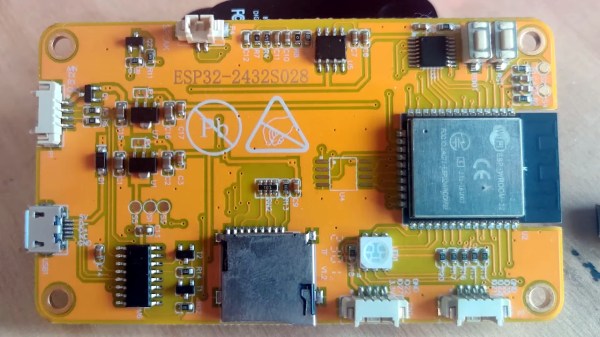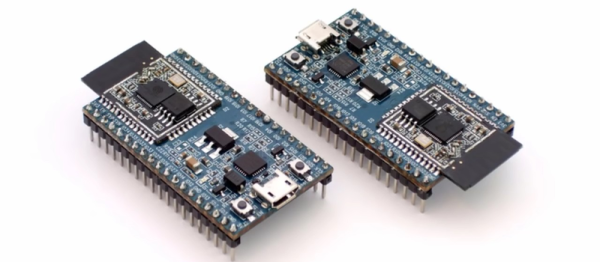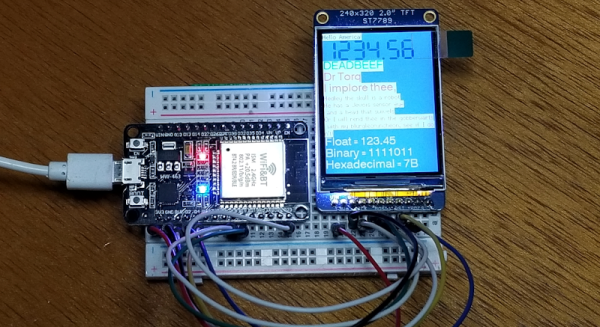For the most part, Hackaday is all about hardware hacking projects. Sometimes, though, the real hack in a project isn’t building hardware, but rather building a community around the hardware.
Case in point: [Brian Lough]’s latest project, which he dubs “CYD,” for the “cheap yellow display” that it’s based on; which is a lot easier to remember than its official designation, ESP32-2432S028R. Whatever you call it, this board is better than it sounds, with an ESP32 with WiFi, Bluetooth, a 320×480 resistive touch screen, and niceties like USB and an SD card socket — all on aforementioned yellow PCB. The good news is that you can get this thing for about $15 on Ali Express. The bad news is that, as is often the case with hardware from the Big Rock Candy Mountain, the only documentation available comes from a website we wouldn’t touch with a ten-foot pole.
To fix this problem, [Brian] started what he hopes will be a collaborative effort to build a knowledge base for the CYD, to encourage people to put these little gems to work. He has already kick-started that with a ton of quality documentation, including setup and configuration instructions, tips and gotchas, and some sample projects that put the CYD’s capabilities to the test. It’s all on GitHub and there’s already at least one pull request; hopefully that’ll grow once the word gets out.
Honestly, these look like fantastic little boards that are a heck of a bargain. We’re thinking about picking up a few of these while they last, and maybe even getting in on the action in this nascent community. And hats off to [Brian] for getting this effort going.
Continue reading ““Cheap Yellow Display” Builds Community Through Hardware” →

















